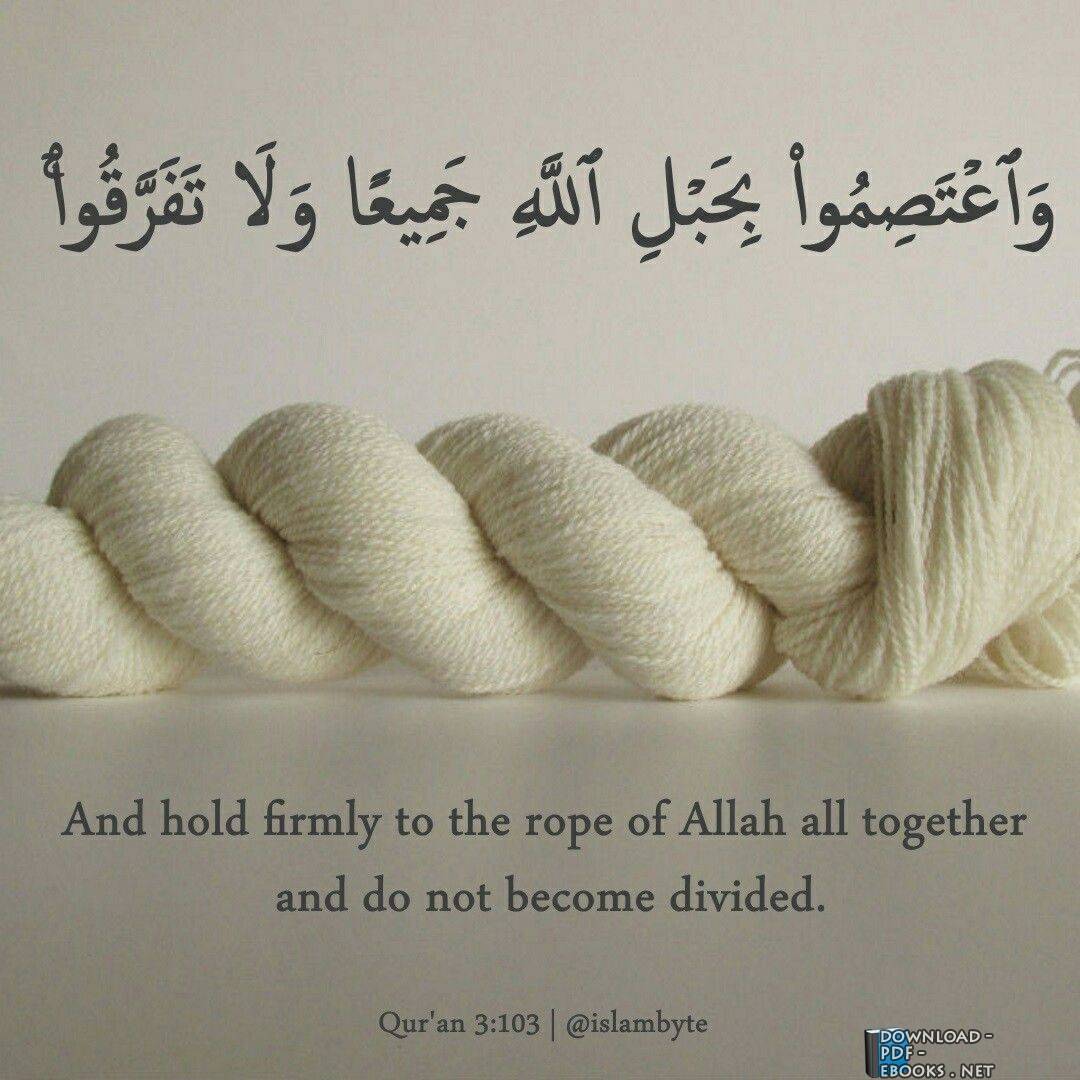📘 قراءة كتاب Why Muslim Women are Re-interpreting the Qur`an and Hadith أونلاين


يتحدث عن المرأة التي هي نصف المجتمع البشري، والتي ظلمت عبر حقب طويلة من تاريخ الإنسانية، فجاء الإسلام الذي هو منهج الله في الأرض، فكرمها وأعطاها الحقوق التي تليق بإنسانيتها ، كما أنه كلفها بواجبات منوطة بها تؤكد من خلالها رسالتها في الحياة التي خصها الله بها
قال تعالي :
﴿ إِنَّ الْمُسْلِمِينَ وَالْمُسْلِمَاتِ وَالْمُؤْمِنِينَ وَالْمُؤْمِنَاتِ وَالْقَانِتِينَ وَالْقَانِتَاتِ وَالصَّادِقِينَ وَالصَّادِقَاتِ وَالصَّابِرِينَ وَالصَّابِرَاتِ وَالْخَاشِعِينَ وَالْخَاشِعَاتِ وَالْمُتَصَدِّقِينَ وَالْمُتَصَدِّقَاتِ وَالصَّائِمِينَ وَالصَّائِمَاتِ وَالْحَافِظِينَ فُرُوجَهُمْ وَالْحَافِظَاتِ وَالذَّاكِرِينَ اللَّهَ كَثِيراً وَالذَّاكِرَاتِ أَعَدَّ اللَّهُ لَهُمْ مَغْفِرَةً وَأَجْراً عَظِيماً (35)﴾
[سورة الأحزاب]
جاء في القرآن الكريم والسنة النبوية آيات وأحاديث تدل على صفات المرأة المسلمة
قال تعالى :{ واذكروا في الكتاب مريم إذ انتبذت من أهلها مكانا شرقيا( 16 ) فاتخذت من دونهم حجابا فأرسلنا لها بشراً سويا( 17 ) قالت إني أعوذ بالرحمن منك إن كنت تقيا( 18 ) قالت أنى يكون لي غلام ولم يمسسني بشر ولم أكن بغيا( 20 ) قال كذلك قال ربك هو علي هين ولنجعله آية للناس ورحمة منا وكان أمرا مقضيا( 21 ) فحملته فانتبذت به مكانا قصيا( 22 ) سورة مريم.

Chapter 11 m
Why Muslim Women are Re-interpreting
the Qur`an and Hadith: A Transformative
Scholarship-Activism
Nimat Hafez Barazangi
Introduction
Because the true message of Islam concerning women was rarely practiced
throughout the past 14 centuries of Muslim history, women scholar-activists1
who
self-identify with Islam have been taking it upon themselves to reinterpret the
Qur`an to change attitudes about gender (Barazangi 2009). They have been trying
to go beyond revolution to a wake-up call about gender practices in Islam. By
“revolution”, I mean not only the revolutionary unrest that has been sweeping
some Arab societies since December 2010, but also the silent revolution that I
discussed few years back—the systematic critical analysis of one’s Muslim
identity and how others contribute to shaping it (Barazangi 2005). Although
Muslims are a majority in these societies, few in-depth discussions of history and
religious foundations for reform, particularly in gender practices, took place prior
to the recent revolutionary unrest, like the writings of Jamal al Banna (2005a) and
the recent article by Rabab El Mahdi (2010). But this literature does not seem
to reach those politicized Muslims who are running the post-revolution affairs
in these societies. To the contrary, they are leading a counter-revolution against
gender justice (al Jazeera 2011).
There is a crisis in the general interpretation and representation of Islam leading
Muslim women, like the majority of Muslims, to fail to embrace the Islamic concept
of Tawhid. The concept of Tawhid reminds Muslims of their humanness, that is,
their ability to reason; the Qur`an provides the ethical guidance for the exercise of
this ability. To alleviate this general problem of interpretation and representation,
each woman needs to self-identity with Islam (Barazangi 2000). The Muslim
woman must realize that, as an individual Muslim, she becomes legally bound by
1 The term scholar-activists and/or scholarship-activism were adopted by some
American Muslim women scholars in the edited volume Windows of Faith by Gisela Web to
indicate a specific approach “because it originates in the conviction that to look at women’s
issues from within the Islamic perspective must include, and indeed unite, issues of theory
and practice” (2000: xi).
حجم الكتاب عند التحميل : 561 كيلوبايت .
نوع الكتاب : pdf.
عداد القراءة:
اذا اعجبك الكتاب فضلاً اضغط على أعجبني و يمكنك تحميله من هنا:

شكرًا لمساهمتكم
شكراً لمساهمتكم معنا في الإرتقاء بمستوى المكتبة ، يمكنكم االتبليغ عن اخطاء او سوء اختيار للكتب وتصنيفها ومحتواها ، أو كتاب يُمنع نشره ، او محمي بحقوق طبع ونشر ، فضلاً قم بالتبليغ عن الكتاب المُخالف:
 قبل تحميل الكتاب ..
قبل تحميل الكتاب ..
يجب ان يتوفر لديكم برنامج تشغيل وقراءة ملفات pdf
يمكن تحميلة من هنا 'http://get.adobe.com/reader/'


 منصّة المكتبة
منصّة المكتبة